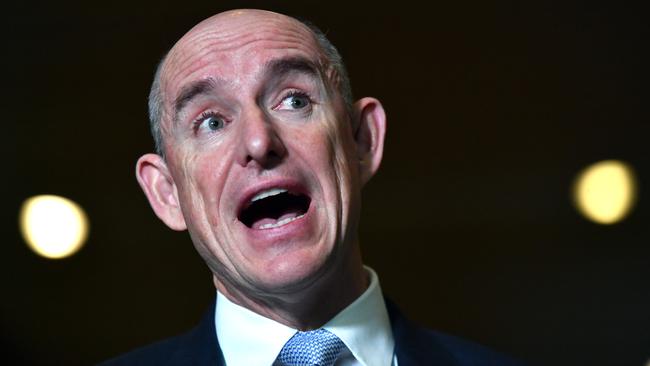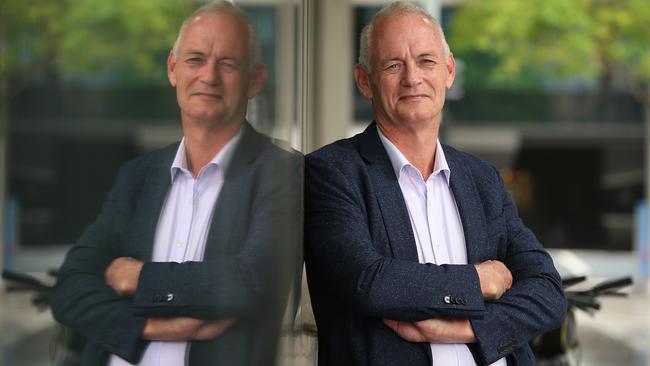The FOI system is broken, and that’s bad for democracy
Politicians want to control the message. They don’t want voters to know about alternatives, possible problems, incompetence, crooked deals or lies.

Delays with Australia’s freedom of information regime mean it can take up to five years to win an appeal against secrecy, leaving voters little hope of getting contested government documents about a current government.
The huge appeal backlog led to the abrupt resignation of commonwealth FOI commissioner Leo Hardiman KC last week because he doesn’t have the power to fix the problem of delays.
It is unclear what additional powers Mr Hardiman may have wanted but governments routinely appeal against FOI decisions to release information because they want to control the message.
For the record, The Australian has lodged an FOI request with the Office of Australian Information Commissioner to find out what changes or powers Mr Hardiman sought from the government in order to improve the appeal system.
Mr Hardiman came to the job with 30 years legal experience with government, and was the first FOI commissioner for seven years, as the job was left vacant by the former Coalition government.
But just a year into his five-year appointment, he is gone. At least in the short term, the delays on appeals can only get worse.
The Senate recently heard there were 2010 reviews under way, with some requests dating back to 2018. Demand for reviews is soaring, with the OAIC’s 2021-22 annual report showing a 63 per cent increase in review applications (1995, up from 1224 the year before).
Citizens want the truth and they use FOI. Politicians in power want to control the message. They don’t want voters to know about alternatives or possible problems or incompetence, crooked deals or lies. And bureaucrats fight against the release of FOI requests.

That is why a fair and timely FOI appeal system is so important, particularly as agencies often argue so-called deliberative documents, or documents that reflect the thinking processes of government, should remain secret.
The main argument used with deliberative documents is that their release is against the public interest because it will damage the relationship between politicians and bureaucrats. Bureaucrats won’t give full and frank advice if FOI release happens because politicians won’t like it, or them.
That claim has been destroyed by the Robodebt royal commission. Cosy relationships and secrecy allowed politicians and bureaucrats to unlawfully chase almost $2bn from more than 400,000 people. The independent Commonwealth Ombudsman also failed to do its job.
The Robodebt commission also shines a light on the FOI application and appeal process itself, and why it needs reform. It is an appeal system where the government is still fighting to keep Robodebt information secret. In a last gasp of secrecy about Robodebt, an Administrative Appeals Tribunal decision relating to an FOI on the scheme is now heading to an appeal at the Federal Court. Taxpayers are paying the government’s lawyers to fight the case.
Back in 2017, IT expert Justin Warren used FOI to seek documents about early business plans produced by the Department of Human Services – now Services Australia – to justify Robodebt.
Access was denied, the appeal was upheld by the OAIC but the government then appealed to the AAT against the OAIC and Mr Warren went to the AAT with the aid of the Grata FOI Project and free assistance of Maurice Blackburn Lawyers.
The decision was handed down in early December last year with only one of 12 documents to be released. That process took more than five years, and is now being appealed to the Federal Court.
The AAT found 11 documents should stay secret because of the powerful cabinet exemption. The Australian can reveal two of those documents, found to be covered by the cabinet exemption, appear to be exactly the same as two documents that have emerged as evidence at the Robodebt royal commission. One document apparently relates to a meeting between two ministers to discuss whether to make a cabinet submission; the other was apparently a briefing used for Liberal Party political propaganda.
If true, it is difficult to see how either document could be a cabinet document, and the Robodebt royal commission may consider this issue given the importance of FOI in the scrutiny of government. Certainly, the Federal Court will look at the issue later this year.
Michael McKinnon is a multiple Walkley Award-winning journalist and worked as the FOI editor at the ABC, Seven, and The Australian.



To join the conversation, please log in. Don't have an account? Register
Join the conversation, you are commenting as Logout